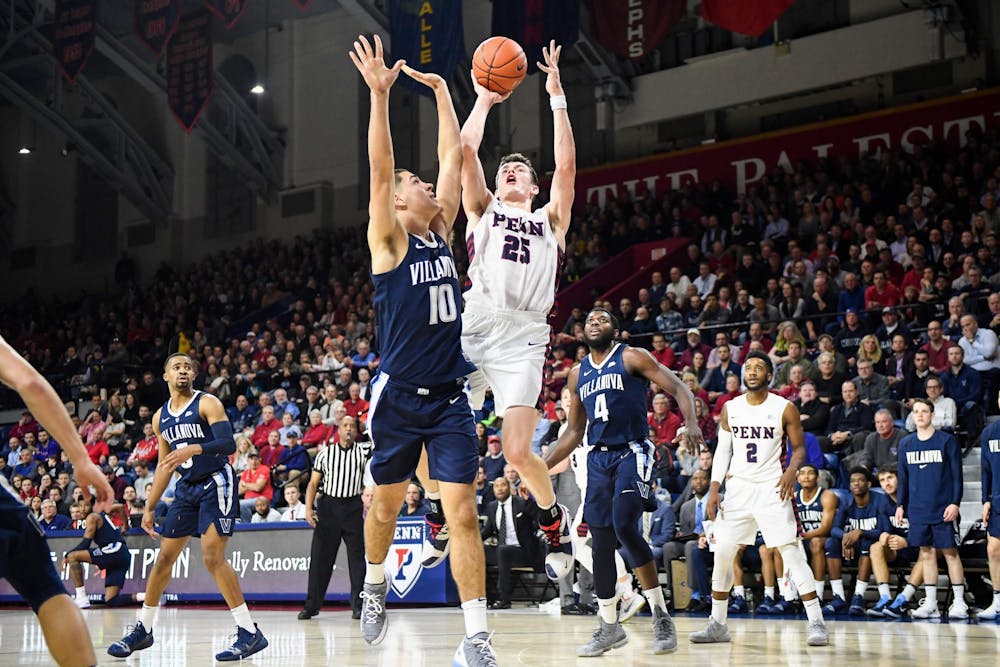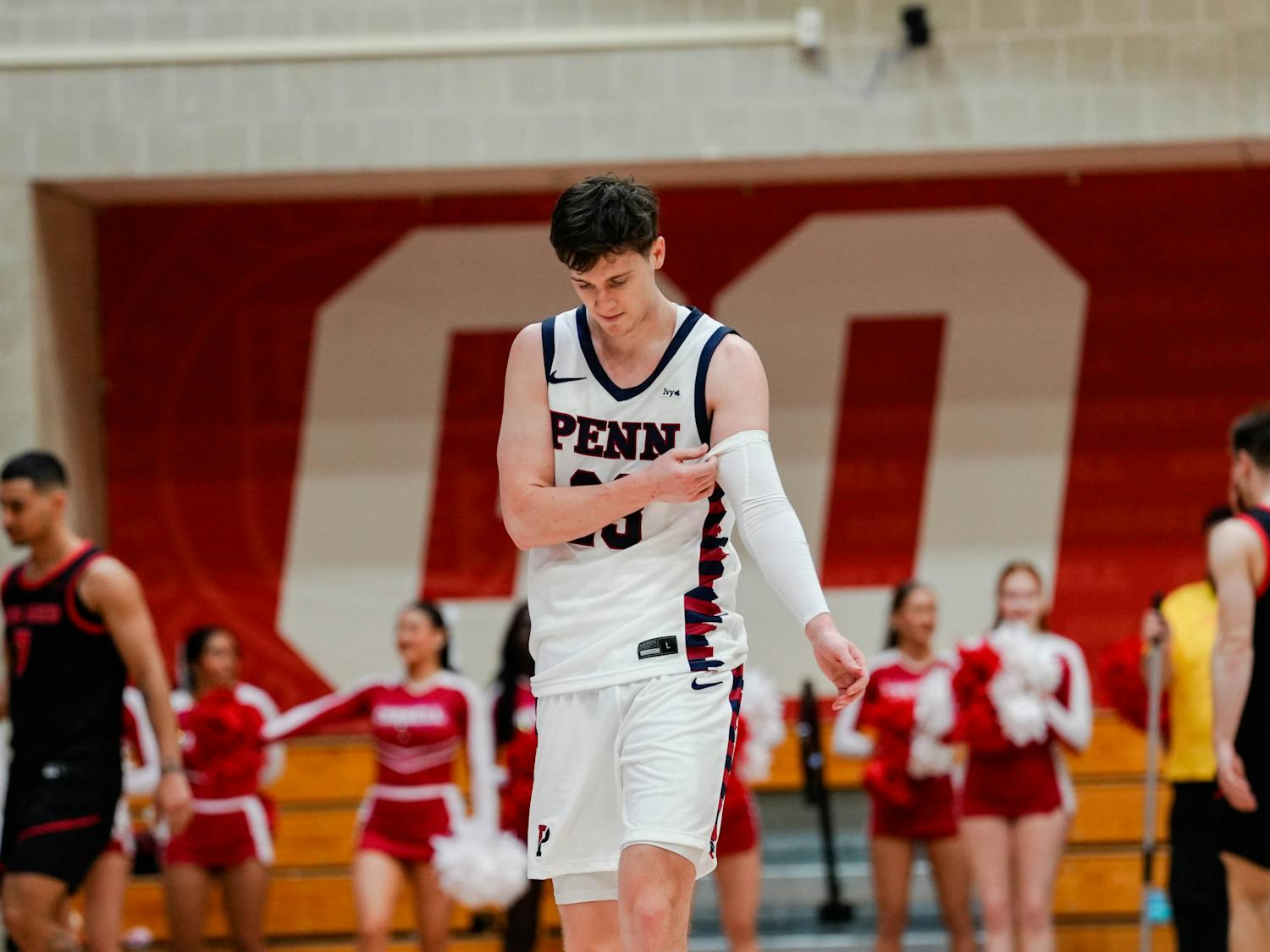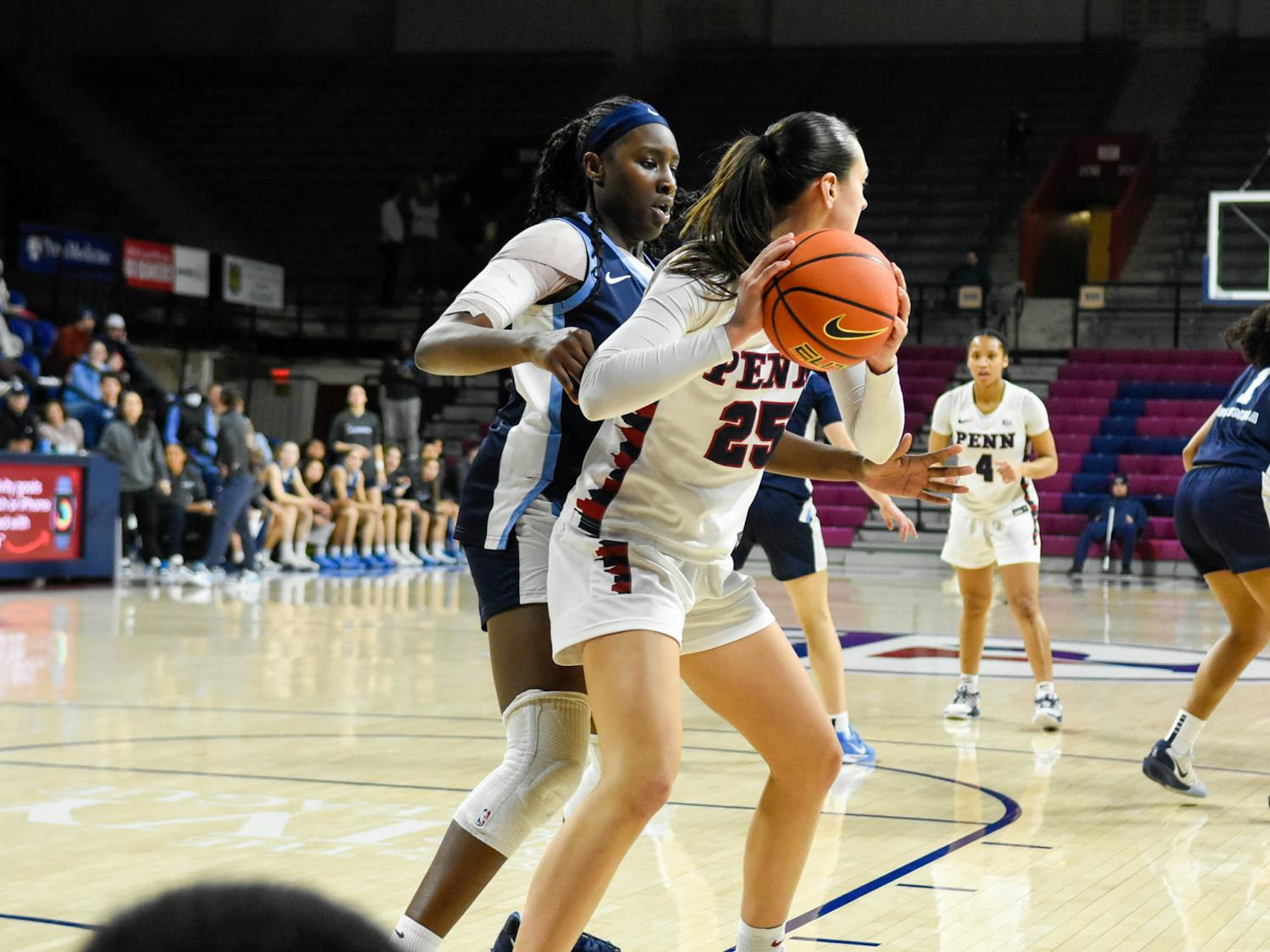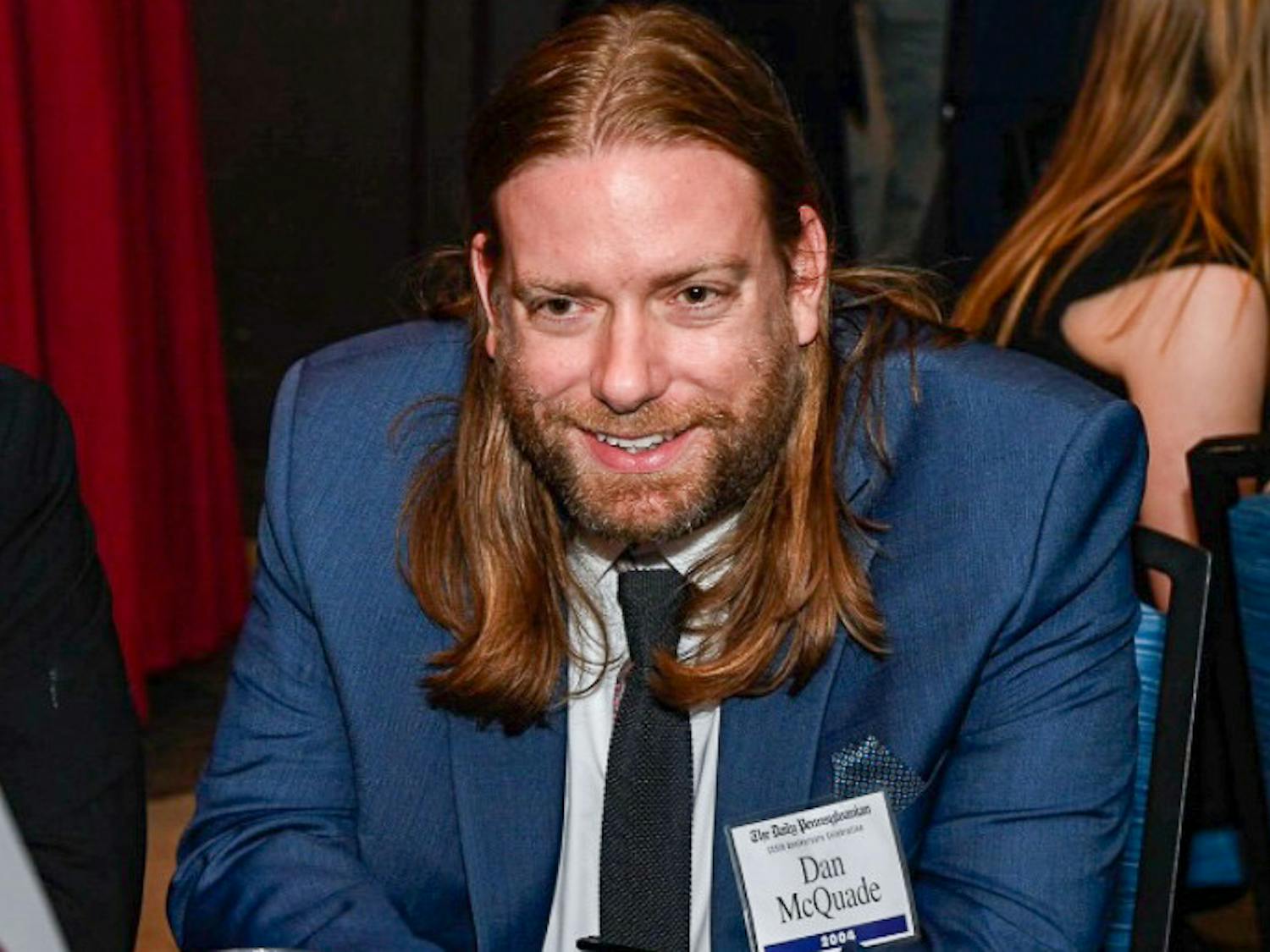AJ Brodeur last suited up for the Red and Blue in March 2020, signing off on a decorated career that included being named to first team All-Ivy in a unanimous decision and the co-Ivy League Player of the Year. Since then, Brodeur has taken his game to new heights — and to a new continent. Brodeur is in the midst of his second year of his professional career in Europe. We spoke with him, and he shared his thoughts on his time in Europe thus far.
DP: You’re currently playing in the BNXT’s inaugural season. What’s it like playing in a league’s inaugural season? And what drove your decision to go there?
AJ: "It’s cool. This is actually my first full year with a team. It’s my second year professionally, but I was bouncing around a little bit. I was with three teams last year just 'cause of how crazy it was with COVID-19, not a lot of openings available and all that. It was really nice to settle down in a place I know I’ll be all year. And having it be the first year this place has come together … The BNXT league is actually a combination of the Belgian National League, and it just combined with the league from the Netherlands into one bigger league — and that’s the BNXT league."
"I think it's really cool. It’s the first year that they’re trying it, and it’s very streamlined. I really appreciate the work they’ve put in to make it work, especially through the pandemic and all that. It’s been really cool, I really enjoy my time here."
DP: It’s a big debate: American-style ball versus European-style ball. What’s the biggest difference, do you think?
AJ: "It’s hard to put a finger on it. The difference is definitely there, and when I’m playing, I definitely notice that something’s different, but sometimes it’s hard to tell what it is."
"I remember my first reaction last year to the game was how unorthodox everything looked. I played with some really skilled players last year — ball handlers, big men — and I couldn’t help but notice how different their moves looked, or how they finished the ball, or how they finished around the rim. A lot of big emphasis on Euro step and stuff like that. [The difference] is real. I would say a lot more emphasis on footwork and fine motor skills where it’s very intricate."
"I feel a lot of times — especially in college basketball — it’s about the big plays [like] the slam dunks, the posters. But here, it’s a lot more tactical … it’s almost like putting the skills you take in America, and putting it under a magnifying glass. You have to really fine-tune yourself to set yourself ahead. That’s exactly what I like — that’s what I’ve always been trying to model my game after. People told me all the time they thought my game looked a lot like the European game, so I’m starting to see what they mean now."
RELATED:
Quakers snap five-game losing streak with win over Big Red
They just keep rolling: five takeaways from Penn's win over Cornell
DP: Which of your skills do you think have translated really well in Europe so far?
AJ: "My footwork — number one for sure. A lot of times I could get away with a lot of stuff like that when I played in the U.S. because it was one of my strong points — how poised and how in-control I was with my feet. [I was always] shuffling, staying light but also being able to make big, long steps around defenders — stuff like that."
"Here I noticed it’s a little bit harder. Maybe the guys are just bigger and stronger, and they’ve also been working on this. But the footwork, I’d say, is my biggest carryover from my game when I was growing up — up until college to here."
DP: You grew up in America all your life. How has it been culturally different living in Europe as opposed to America?
AJ: "I’m not gonna lie: it’s been challenging at times. I would imagine that anyone would struggle just a little bit living in a new country on their own, especially in the times we’re in now. I’ve been trying to embrace the cultures of the countries I’ve been in. Last year, I was in Germany, and then I was in Iceland, and now I’m in Belgium. I’ve had a little taste of some different parts of Europe — been able to eat the food. Iceland was a big seafood [area]; they had a lot of seafood I had never even heard of. And about the languages: you know, in Belgium they speak three different languages?"
DP: Three?
AJ: "Yeah, so half the country speaks French. The other half speaks Flemish, which I think is just another word for Dutch. And pretty much everyone speaks English. I’m glad about that, but it’s still hard because on default, most people just speak Dutch or French at first, and I have to ask them to repeat that [and say], 'Oh I only speak English.' Luckily people are patient. Now I know how hard it is. Sometimes you’re in the U.S. and someone is trying to communicate, but they don’t speak English. I’m seeing how hard it is to really integrate yourself into a community that doesn’t even speak [your] language. It’s a learning experience that I’m glad to have, for sure."
DP: Going off of that, are there any big cultural shocks that stood out to you?
AJ: "I would say finding a good supermarket that reminds me of the stores we have back home in the U.S. A lot of the places to get food is small market-type places where it’s very specific to what you need. The big supermarkets were few and far between when I was first looking. I was just looking for a place with everything in it, with brands that I recognized. When I saw my first Doritos bag on a shelf, that’s when I knew I found what I was looking for."
DP: I know you mentioned that last year was particularly hard because of COVID-19. Can you just talk more about how starting your career professionally has been affected because of the pandemic?
AJ: "Yeah, it was definitely really hard last year. Like I said, because of the uncertainty, not a lot of guys were moving teams. A lot of guys were choosing the safe route — signing with the same team — just trying to solidify their spot for the next year. And as a result, that led to a lot less jobs for players, especially like me, who was a first-year professional."
"I had no professional experience; I was essentially just looking for a team willing to take me on. That was very difficult, but luckily, I have a really good agent who was working around the clock to just get my name onto some team’s boards, getting me into conversations. Luckily, I was able to find a team in Germany for a couple months, and then Iceland for the rest of the season."
DP: You played for Stjarnan. You had pretty good success with them and you went to the semifinals, where you averaged 11 points and seven rebounds. How did it feel to be a contributor to your team’s postseason success, especially during your first year?
AJ: "It felt very good, especially given the long year that I already had. Between bouncing between teams in Germany for the end of 2020, to getting that chance in 2021 to play in Iceland with that team. As soon as I got there, I really got along well with the guys there. It was the first sense of comfort and stability I had in probably a year since COVID-19 started at that time. And having all that culminate in the playoff run that we had; it ended when it did, but I was just really happy to end my first year on such a good note, building all those relationships with people around the world that I have now, especially with the guys in Iceland who I have nothing but good things to say about them. They made it really easy for me to be a contributor right away. There was no bar for entry there — they were really great. I was happy with how we all did by the end of the season."
DP: What is one big takeaway from your professional journey that you have so far?
AJ: "I would say one of my biggest takeaways is just how grateful I am to even have this opportunity that I’m in. Sometimes, I just take a sit back and look at how everything’s going. And once I really think about it — go down that rabbit hole — and think, 'I’m in Europe now.' Not a lot of people even go from the U.S. to Europe, even if they do, to visit or something, they save up for months from their jobs. They’re paying me to live here and embrace that culture."
"The funny thing is that it can be a new place every year. That’s something I would have never thought that I was doing when I was younger. It almost feels surreal sometimes when I take a step back and look at it. Just being thankful and being grateful for everything that I have over here. Sometimes when it gets really hard — like when I’m missing my family, girlfriend, or any of that — I just think about also how lucky I am to be in this situation, how even the bad times will pass and just to enjoy the good times I have now and to have a positive outlook. This whole experience has helped me keep that mindset."









